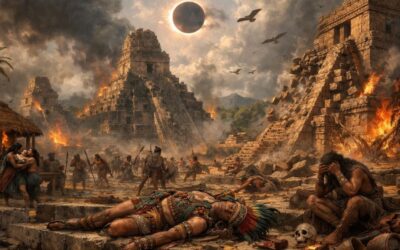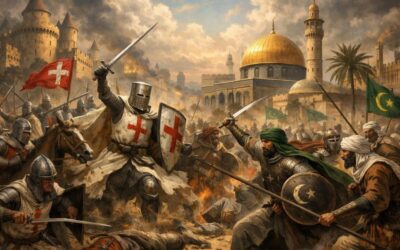Decolonization and the Cold War in Africa: A Tapestry of Power and Liberation
Amidst the vast landscapes and diverse cultures of Africa, a new narrative unfolded during the 20th century. As the continent embarked on its journey of decolonization, the ripples of the Cold War added further intricacies to its story. This saga is one of superpower rivalries, covert battles, and nations striving to carve out their destinies in a rapidly changing world.
Superpower Rivalry: The Winds of Independence
The mid-20th century witnessed the decline of colonial empires and the birth of newly independent African states. However, their aspirations quickly became intertwined with the global power struggle between the United States and the Soviet Union.
These two superpowers, each trying to expand its sphere of influence, found fertile ground in Africa. They offered financial aid, weapons, and military training to African nations, hoping to gain their allegiance. In return, these nations, newly liberated from the yokes of colonialism, sought to maneuver this superpower rivalry to their advantage, ensuring their sovereignty while benefiting from Cold War largesse.
Proxy Wars: The Silent Battlegrounds
The Cold War’s ferocity found its way into Africa not through direct confrontation between the US and USSR but via proxy wars. Four countries, in particular, became the theaters of these geopolitical dramas: Angola, Mozambique, Ethiopia, and Somalia.
Angola saw one of the most prolonged conflicts. Upon its independence from Portugal in 1975, various factions, backed by different global powers, vied for control. The MPLA, with Soviet and Cuban support, fought against UNITA, backed by the US and South Africa.
Mozambique, another former Portuguese colony, experienced a similar tug-of-war. FRELIMO, the ruling party, leaned socialist and was USSR-aligned, while RENAMO, backed by anti-communist states, sought to overthrow them.
In the Horn of Africa, Ethiopia and Somalia clashed over territory and ideological lines. Ethiopia, initially a US ally, turned to the Soviets after a Marxist coup, while Somalia, ironically, shifted from Soviet to American support.
South Africa’s Nuclear Enigma: The Apartheid Bomb
While many African nations were pawns in the superpower rivalry, South Africa charted a different course. Amidst its isolation due to apartheid policies, it pursued nuclear capabilities. By the 1980s, with help from Israel, South Africa had developed six nuclear bombs. Although never tested, these weapons became powerful bargaining chips in global geopolitics.
However, as apartheid crumbled and the Cold War waned, South Africa took a surprising step. In 1991, then-President F.W. de Klerk dismantled the country’s nuclear arsenal, becoming the first nation to voluntarily renounce and dismantle its nuclear program. This move was a testament to the changing dynamics of both the continent and the world.
Cuba and Others: External Actors on African Soil
While the US and USSR were primary actors in Africa’s Cold War story, other nations, notably Cuba, played significant roles. Fidel Castro, viewing Africa as a frontline in the fight against imperialism, sent Cuban troops and advisors to support leftist movements, most prominently in Angola.
Countries like China and North Korea, too, extended their influence. They provided military support and infrastructure development, weaving their threads into the complex tapestry of African geopolitics.
Epilogue: Legacy of a War Unseen
Africa’s Cold War story is one of resilience and strategic maneuvering. While external powers saw the continent as a battleground for their ideologies, African nations navigated these treacherous waters, leveraging superpower rivalries to reinforce their nascent independence.
Today, as we reflect on this era, we must remember the sacrifices made by countless Africans caught in the crossfire of proxy wars. Their stories remind us of the broader implications of global power dynamics and the indomitable spirit of nations seeking to carve out their destinies.
This chapter of Africa’s history, colored by the Cold War’s shades, offers lessons in diplomacy, strategy, and the perennial quest for sovereignty. It stands as a testament to a continent’s journey through tumultuous times and its undying hope for a brighter future.
Keywords:
- Decolonization: The process by which colonies become independent from their colonizing powers.
- Superpower: A nation with the ability to exert its influence on a global scale due to dominant military or economic capabilities.
- Proxy Wars: Conflicts where major powers use third parties instead of fighting each other directly.
- Allegiance: Loyalty or commitment to a group or cause.
- Largesse: Generosity in giving gifts, often by people in power.
- Geopolitical: Related to global politics and international relations influenced by geographic factors.
- Apartheid: A system of institutionalized racial segregation and discrimination in South Africa.
- Imperialism: Policy or ideology by which a nation extends its power by gaining territories or establishing dominance over other nations.
- Arsenal: A place where weapons and military equipment are stored or made; or an array of resources available for a certain purpose.
- Nascent: Just coming into existence and showing signs of potential growth.
Key Takeaways:
- Decolonization in Africa during the 20th century was influenced heavily by the Cold War rivalry between the US and USSR.
- As African nations sought independence, they often became arenas for proxy wars funded and supported by these superpowers.
- Four significant proxy war zones were Angola, Mozambique, Ethiopia, and Somalia, each influenced by varying alignments with the US or USSR.
- Amidst global isolation due to its apartheid system, South Africa developed a nuclear program but later voluntarily dismantled it.
- Beyond the primary superpowers, countries like Cuba played significant roles in the African Cold War scenario, especially supporting leftist movements.
- African nations, despite external influences, managed to strategically maneuver their positions to benefit their paths to sovereignty.
Check out the Story of the Cold War Article Series
Cold War Chronicles: From Superpower Showdowns to Silent Echoes (Featured Article)
The Nuclear Arms Race: An Era of Fear and Hope
CIA vs. KGB: The Hidden Wars of the Cold War Era
The Cold War’s Echo in Africa: Decolonization and Proxy Battles
The Non-Aligned Movement: Navigating the Cold War’s Tumultuous Seas
Echoes of the Cold War: Its Indelible Mark on Popular Culture & Media
Capitalism vs. Communism: The Economic Tug of War during the Cold War










0 Comments